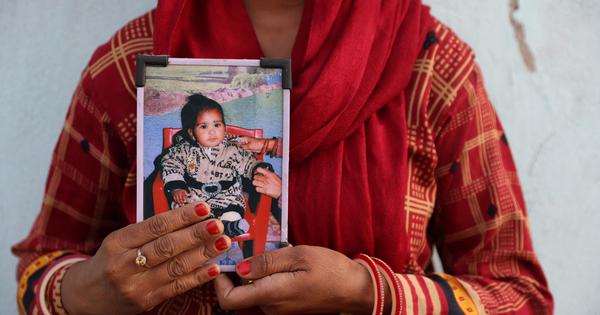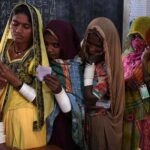Families of victims reflect on the ongoing struggle for accountability and justice in the face of tragedy.
In October 2019, a mother named Makhno Devi took her 11-year-old son, Rutav, to a local hospital in a Jammu village. Rutav had been unwell for three days, exhibiting symptoms such as high fever and inability to urinate. The doctors at the Ramnagar hospital struggled to provide adequate treatment and ultimately referred him to a district hospital located 36 kilometers away in Udhampur. Tragically, Rutav passed away en route. Makhno, who farms maize in Kirmoo village, recounted how the ambulance driver left them on the roadside with her son’s body. For three months, no health officials reached out to inquire about the circumstances of Rutav’s death.
In February 2020, Makhno learned that her son’s death was linked to a contaminated cough syrup, Coldbest-PC, which she had purchased from a chemist. This syrup was manufactured by Digital Vision, a pharmaceutical company located 500 kilometers away in Himachal Pradesh’s Sirmaur district. The situation worsened as thirteen other children in the same district also succumbed after consuming the same syrup, while six survivors were left with permanent disabilities. Rutav’s death was among 172 reported fatalities since 2020, attributed to contaminated cough syrups produced by Indian pharmaceutical companies, which have also been linked to deaths in countries like The Gambia and Uzbekistan.
Despite international scrutiny, including censure from the World Health Organization, no significant changes have occurred. Makhno observed that even after the tragic loss of their children, similar incidents continued to happen. She expressed skepticism regarding any punishment for Digital Vision, especially as four different manufacturers have previously been held accountable for similar violations, with three still in operation. The trial concerning Rutav’s death has stalled due to a stay order from the Jammu bench of the High Court of Jammu and Kashmir.
Two months after Rutav’s death, another mother, Murfa Begum, lost her three-month-old infant after the child consumed doses of the same toxic cough syrup. Murfa indicated that the health department was slow to respond to their cries for help, initiating investigations only months later. By that time, more children had died, and the Regional Drug Testing laboratory discovered alarming levels of diethylene glycol in the cough syrup, a substance known to cause kidney failure.
The judicial process surrounding these cases has been painfully slow. FIRs were filed invoking serious charges, including culpable homicide and drug adulteration, against the owners of Digital Vision and others involved. However, the perceived disparity in justice was evident as the Goyals, owners of the company, quickly secured bail, while the chemist’s bail applications faced repeated rejections. Ashok Kumar, another grieving parent, lost his two-year-old son, Aniruddh, to acute kidney injury after administering the same syrup. He is among the few families who received compensation but continues to demand accountability from those responsible.
Digital Vision remains operational, having expanded its product range despite the controversies surrounding its cough syrup. Families like Makhno’s and Kumar’s are left grappling with their losses and the lack of justice, questioning the effectiveness of regulatory measures and the health system that failed to protect their children.








